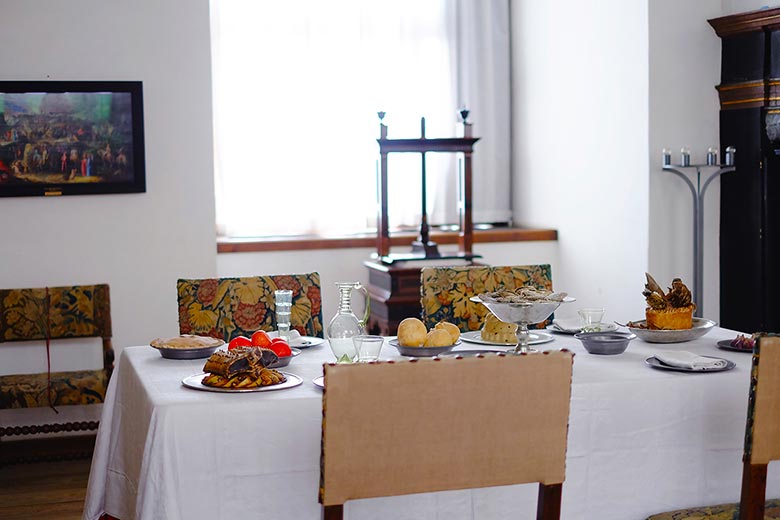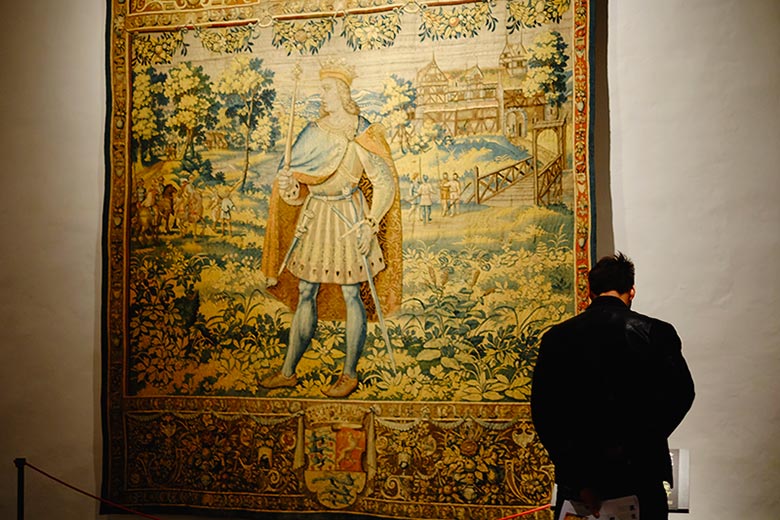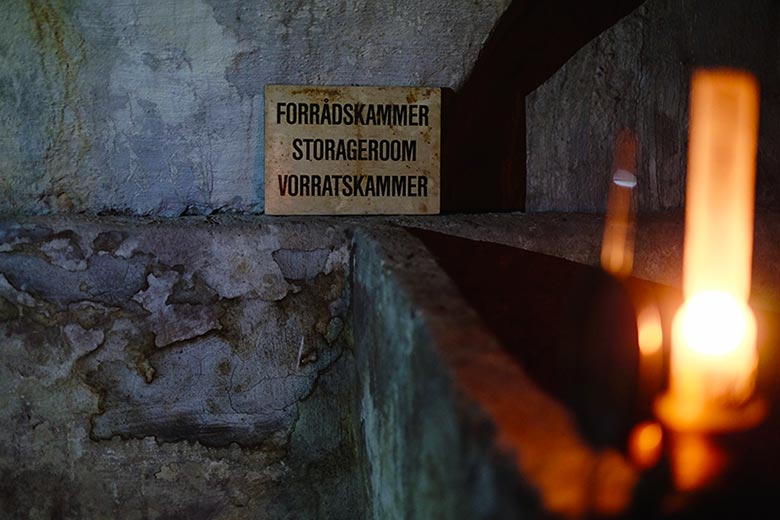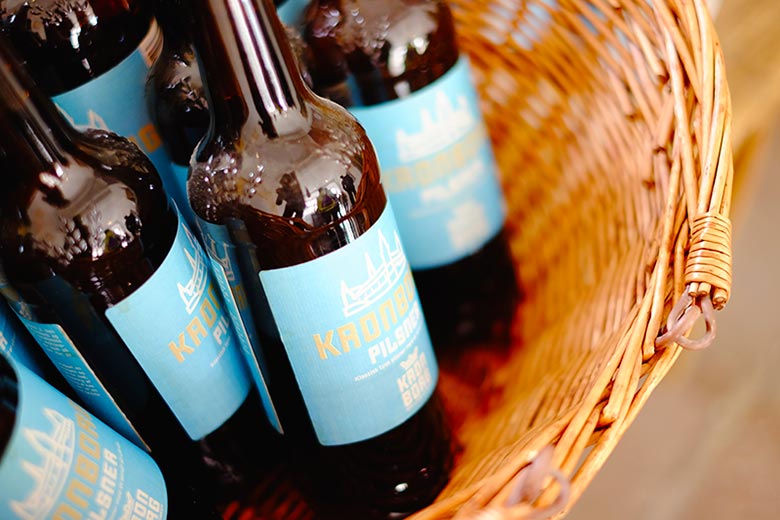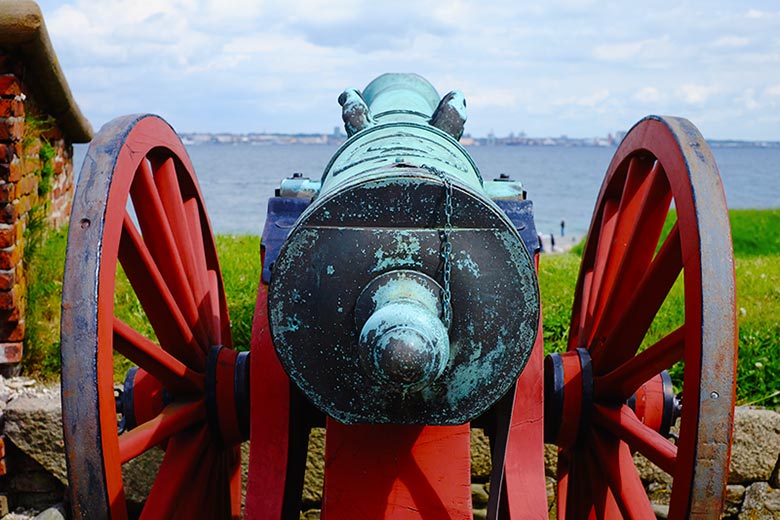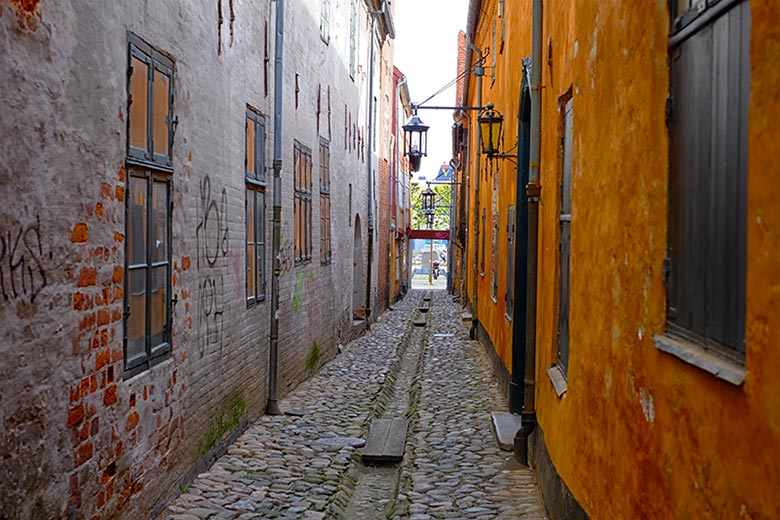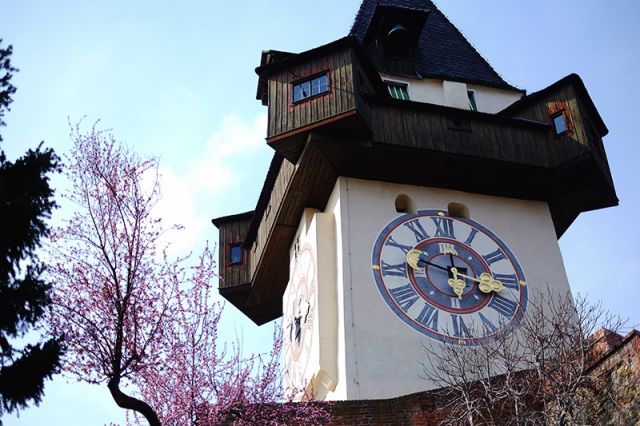To be, or not to be?
Like many other high school students, I had to commit Hamlet’s soliloquy to memory — to this day I can still hammer out most of it (with some hints).
Naturally, my interest was piqued when I found out that just a short train ride from Copenhagen is the castle where Shakespeare’s Hamlet is set.

Only 40 minutes away from Copenhagen, the sleepy town of Helsingør (known to readers of Hamlet as Elsinore) is slightly off the beaten path for the average visitor to Denmark. Most will be satisfied visiting the lively capital. But for the literature nut, nothing could be more intruiging than walking the grounds allegedly haunted by the ghost of Hamlet’s father.
Catching the train from Copenhagen was pretty easy, as trains leave from Nørreport every twenty minutes during peak hours. The train ride itself is gorgeous — we passed quaint Danish towns, lush forestland, as well as the Louisiana Museum of Moment Art, which is famous for its sculpture garden.


Arriving in Helsingør, it was easy for us to find the castle by following the modest crowds. In no time, the looming structure of the Kronborg cropped up in the distance. Like any good fortress, it’s surrounded by a moat and has spiked, Game of Thrones-style gates guarding the entrance.


The castle
Although a UNESCO World Heritage Site, a lot of people come to the castle without going inside. Whether this is the right decision is really dependant upon which aspects of Kronborg are most interesting to you. The interior of the castle is sparsely decorated and hardly ornate, so don’t go in expecting to see origins of Danish design. For that, you should instead look at the castles in Copenhagen itself like Ameliaborg or Rosenborg.
And again, if you’re hoping for more information about where scenes of Hamlet are set inside the castle itself (like I was), you’re in for sore disappointment.
However, more Hamlet-oriented events are available in the summer months, starting in June. It’s possible to see live performances and even take a tour guided by someone dressed as Horatio! This year, in 2016, there are also events organized on the occassion of the 400th anniversary of Shakespeare’s death.
But! — and here’s the rub — If you’re more of a history nut, and the long and epic rivalry between the Danes their archnemesis, the Swedes, is what tickles your fancy, the castle is full of information on this subject and it’ll be especially worth your time to go inside.
Since I came to the castle with practically zero background knowledge of the historic relations between the Nordic countries, it was frankly too much to take in and I had a hard time keeping all the monarchies straight. One upside to this is that it speaks to how much information inside the castle is available in English!
If I were to go again, I would orient myself better with the history between the Danes and the Swedes before going, so I could better absorb all the information with some more context.
This feeling wasn’t unique to Kronborg though. I had the feeling at all the Slotte (castles) I visited in Denmark. I wish I had read a history book before coming to really maximize retention and appreciation for the significance of the places and events I’d learn about.
That said, Kronborg hosts some special artifacts with serious historical significance. Apparently, the theft of tapestries was en vogue in the olden days, and the Swedes frequently pillaged, plundered, and went back home with tapestries under their arms.
One of the rarest is an example of a table canpoy, which is over 425 years old. You could visualize this as a rug that hangs over the dinner table.
During the wars with the Swedes Kronborg was besieged by Karl X Gustav’s Swedish troops in 1658-1660. Many of the valuables of the castle were taken to Sweden as spoils of war, including the table canopy. But since the canopy’s arms and devices were closely associated with the Danish monarchy, it could not be used in Sweden. So for centuries it lay in Swedish stores, until 1868 when it went to the National Museum in Stockholm, where it is normally exhibited. During the rebuilding of the museum up to 2017, the table canopy can be admired at Kronborg, after which it has to go back to Sweden. (Source: A Royal Table Canopy)
Similarly to the function of a rug below the table, a table canopy’s purpose was to keep dust a debris from the ceiling from falling on the food below.
The chapel
Outside the main castle chambers is the chapel, where people are still married to this day.


If you ask me, it’s a bit morbid to get married at the castle where the tragedy of Hamlet and Ophelia played out, but maybe some find that appealing.


The casemates
Next come the casemates. When the castle is under seige, soldiers should be able to survive in the casemates for up to six months. That said, these dark, damp, cavernous alcoves beneath the castle would likely drive me to madness long before the enemy made it in! Just look at that ominous entrance.
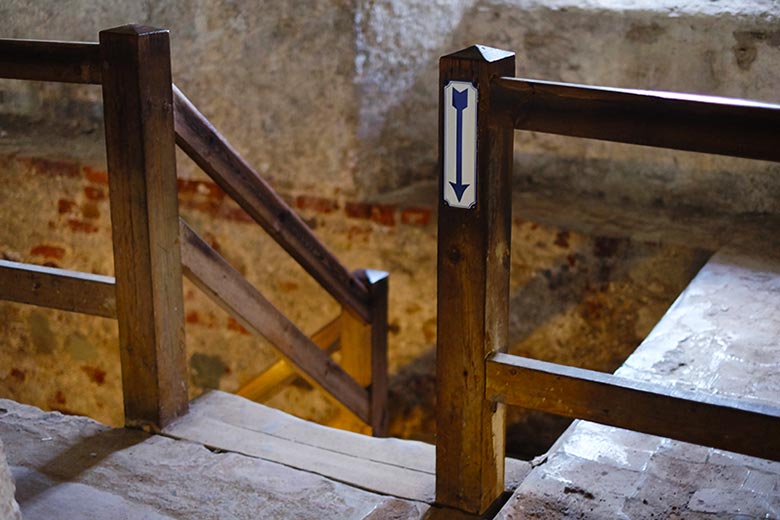
Once you’re inside, there is nothing but darkness. We were lucky to have cellphones with us, which we could use as flashlights, as I don’t think either of us expected that it would be so completely dark. Frankly, I freaked out a bit, and started to doubt the arrow signs that are supposedly installed to help you find your way out. I started imagining someone exceptionally cruel who could easily flip them around. Paranoid? Definitely.
Perhaps some form of consolation should be that you’re accompanied by Holger Dansk, Holger the Dane. Legend says that Holger sleeps below Kronborg, and will wake up to defend Denmark should she come into danger.
The castle grounds
Well, thank Holger, we survived and even made it to the gift shop! If you’re looking for a skull to philosophize to, this is the place to buy one.

Outdoors, you can get a glimpse of Sweden across the narrow sea. Given that Helsingør is north of Copenhagen, it’s no surprise that it’s still chilly even at the end of May. The grounds themselves are lovely to walk around, and you can get right up to the waters that the Danes defended with their cannons.
Interested in more castles during your time in Demark? Check out Practical Wanderlust's guide to the castles of Copenhagen .
